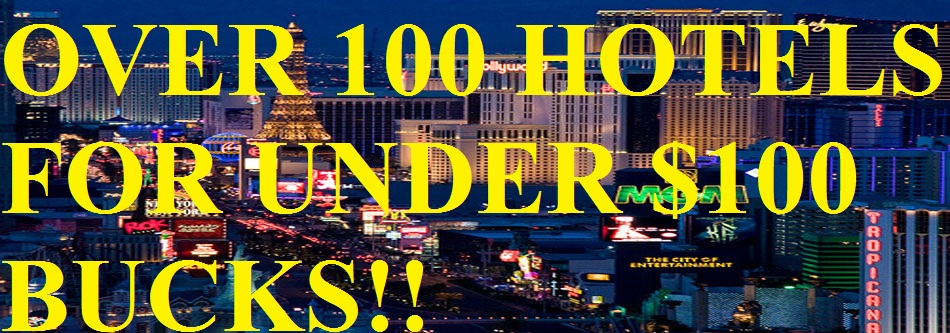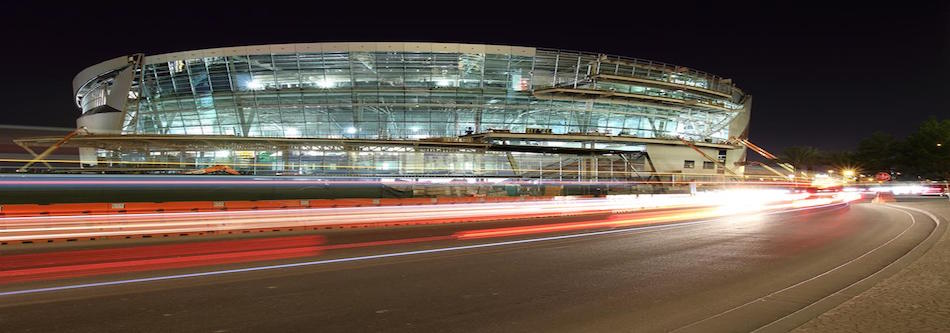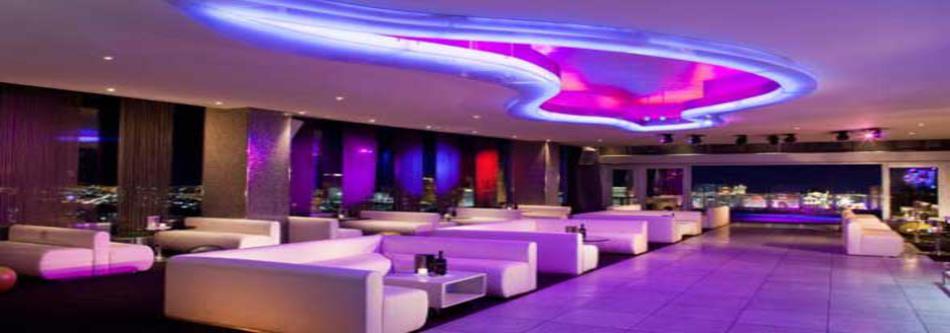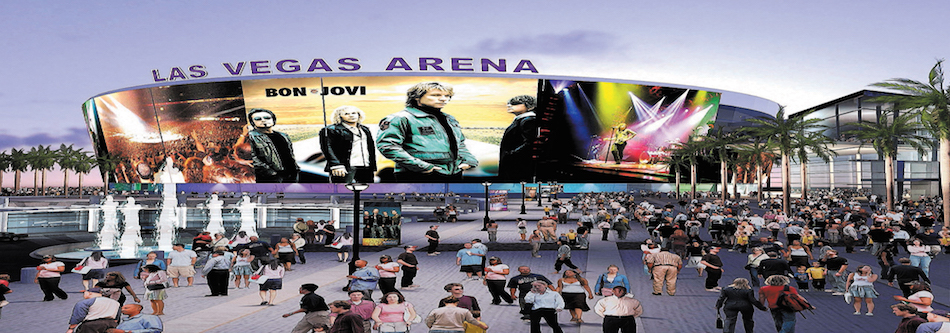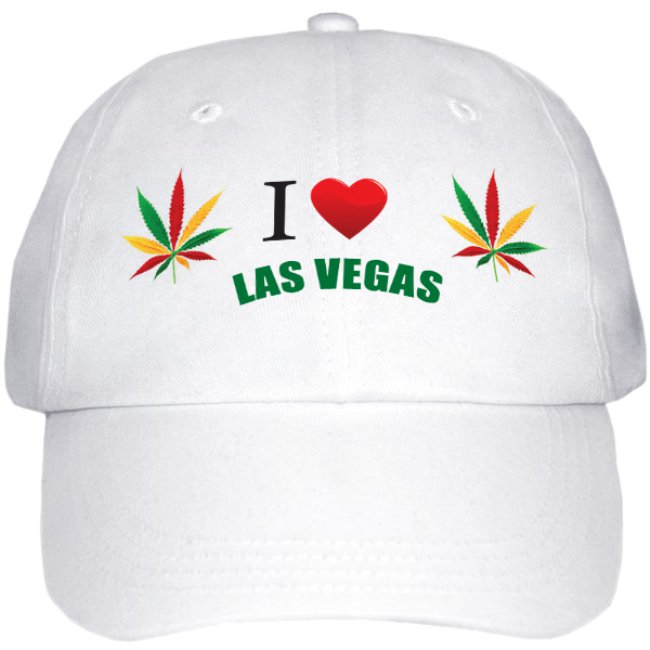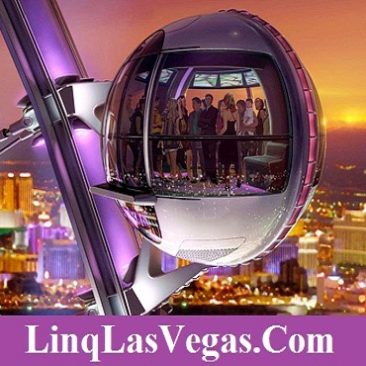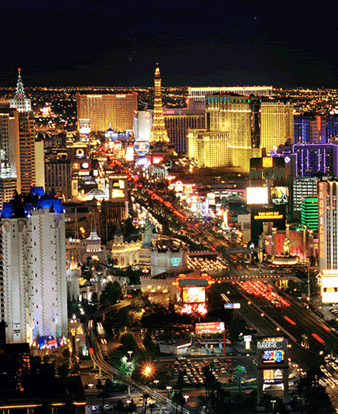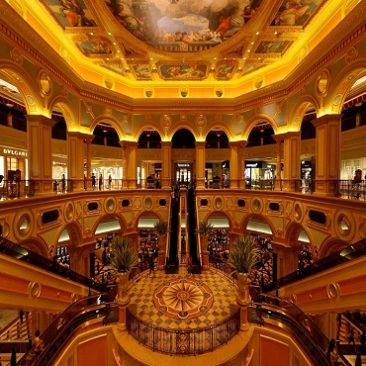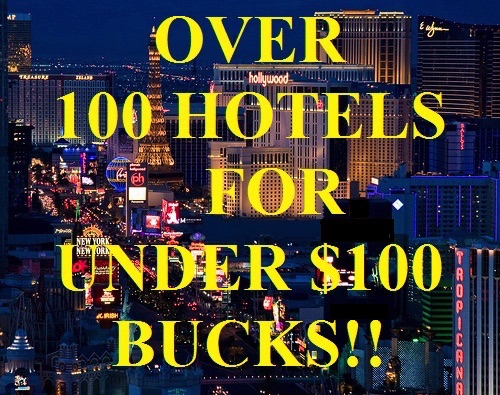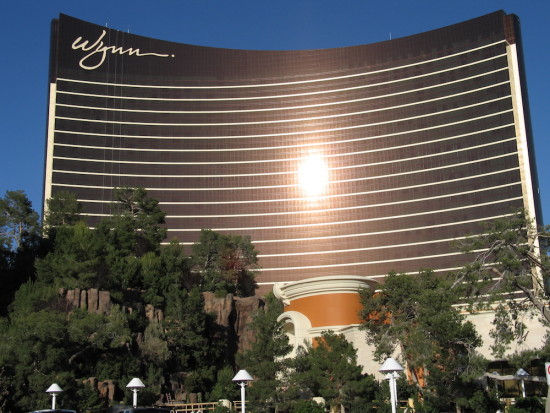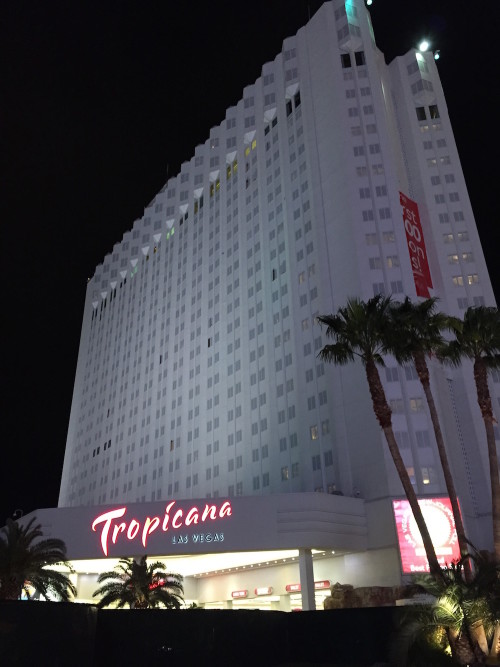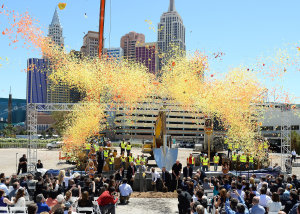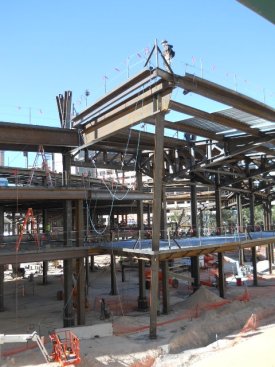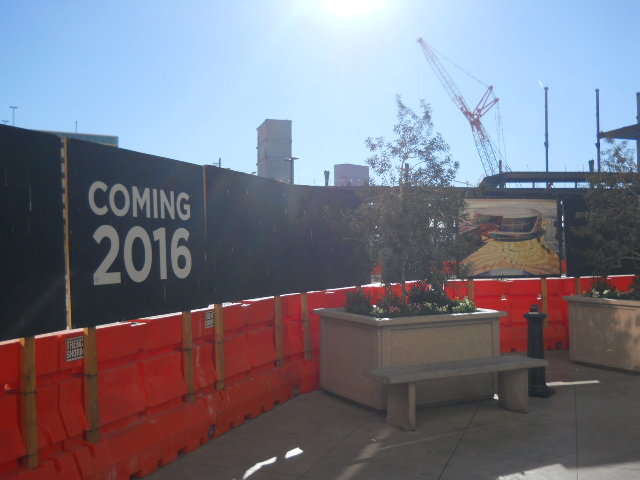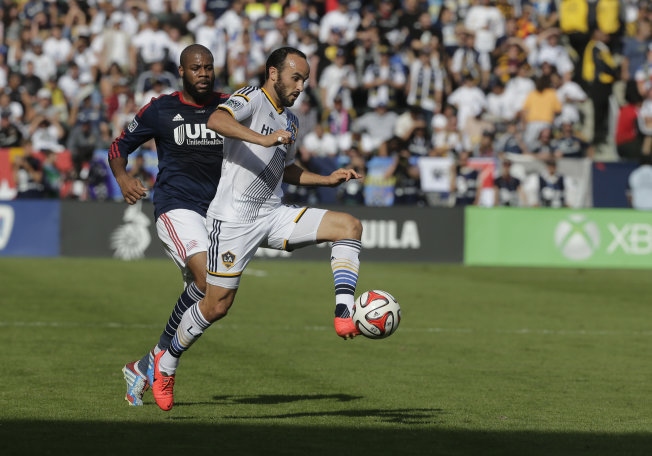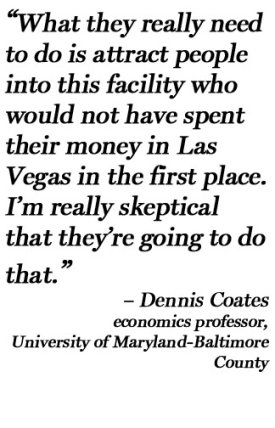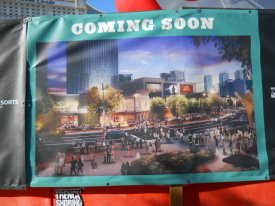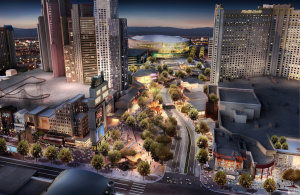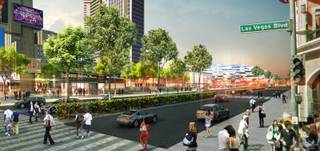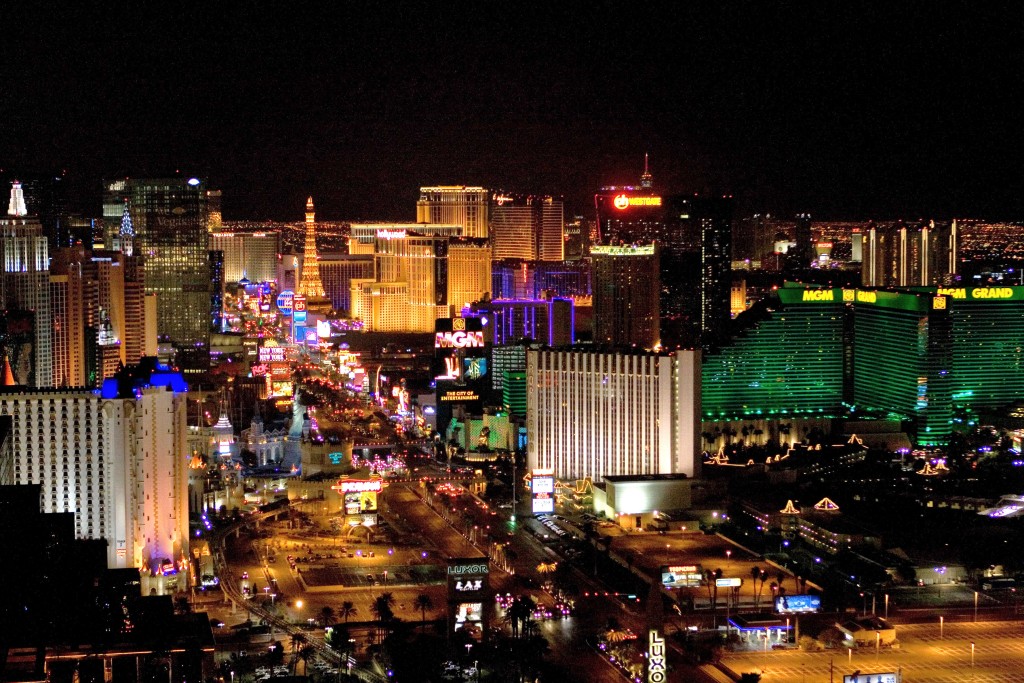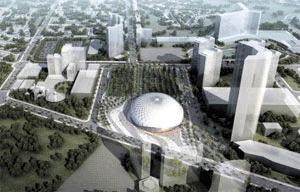Las Vegas News
Latest Las Vegas Entertainment News!!
- North Las Vegas woman’s book tells ‘Pride and Prejudice’ tale
- Canelo vs GGG Weigh In: ‘Team Canelo’ out in full force in Las Vegas on Friday
- Canelo Alvarez will refuse to take the WBC belt if he defeats Gennady Golovkin in Las Vegas on Saturday
- Hamburger Mary’s Burgers Return to Las Vegas
- Celebrities pack Las Vegas for Mexican Independence Day
- Live: Canelo vs Golovkin weigh in results video from Las Vegas
- Deadly Las Vegas Shooting Prompts Homicide Investigation
- Canelo Alvarez v Gennady Golovkin weigh-in LIVE STREAM: Watch as the two stars bid to beat the scales ahead of Las Vegas bout
- Las Vegas Welcomes Mexico’s Independence Day, Crowds it Brings
- Deadly Las Vegas shooting prompts homicide investigation
Las Vegas Major League Gamble
Will Las Vegas big bet on professional sports pay off?
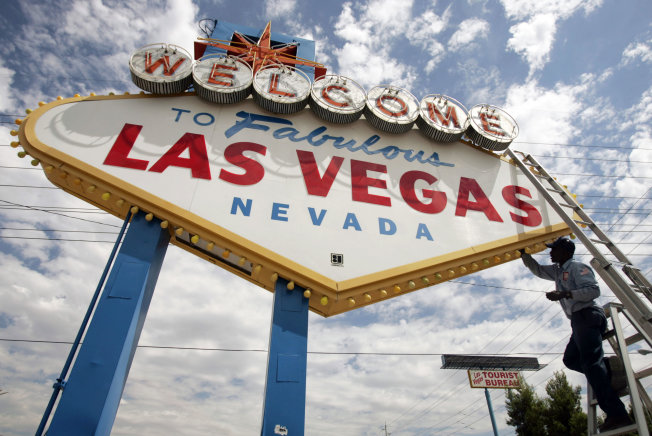
Ticket sales, concert, sports, scheduling, events and updates on all the latest Las Vegas Arena News!
A new team coming to town?
Well it looks like Las Vegas is finally going to get that are an it deserves! This has been in the makings for sometime now an it looks like 2016 will be the year! With the city pushing to get a major sports team under its belt, I guess it only makes sense to have a place for the team to play at before the team arrives right? With the city’s strong push for the symphony park soccer stadium looks like one way or another Las Vegas will succeed again on something that will be an awesome venture for the city of Las Vegas! With EDC growing every year a large stadium will surly be the ticket for events like that. Las Vegas is forever changing and is always setting the standards for bigger and better things and this is no exception to the rule! Yes there has been some very rough times for Vegas but they always seem to stay afloat and are always finding new ways to push the envelope! With a new arena and/or stadium in its near future, I’m sure it will only bring even more excitement to the place that everyone can’t seem to get enough of. Las Vegas is bouncing back in a big way and all I can say is to buckle your seat belts because the next few years is going to be something very special when it comes to the city of entertainment! Stay tuned to this website because it is here to keep you updated on all the progress and events surrounding the new arena as well as the new stadium!
LAS VEGAS – Games are everywhere here. Just step off a plane at McCarran International Airport and you’re immediately hit with the bright lights of slot machines and electronic card dealers. On Vegas’ famed Strip, you can find everything from good old poker and blackjack to casino war, craps and roulette.
But there’s recently been a push to bring a new kind of game to town: major league professional sports.
Both the National Hockey League and Major League Soccer have taken a keen interest in placing franchises in Sin City, which is one of the last significant American cities without any major pro sports teams. The Las Vegas city council voted recently to spend nearly $60 million (or more, depending on how and what you count) on a stadium to house a future MLS franchise and private developers are building a separate arena with an eye toward luring a pro hockey team.
However, many question whether Las Vegas is fertile ground for major professional sports and what role major league squads can play in a city that has already dubbed itself the Entertainment Capital of the World. Would pro sports actually be a safe gamble for Vegas, especially with public money on the line? The data and the history point to “no.” This is one instance where the house is unlikely to win.
[SEE: Political Cartoons on the Economy]‘Nobody skates there!’ Tucked behind the New York-New York and Monte Carlo casinos, the structure that will one day be Las Vegas Arena rises into the sky, the skeletal outline of an arena-shaped space apparent amid the dust and din of ongoing construction. The $350 million arena, slated to open next year, is being built by AEG and MGM Resorts International, giving a future sports team an obvious home right on the Strip (where it would technically be in Paradise, Nevada, not the actual city of Las Vegas).
The arena’s owners have already welcomed the idea of an NHL team hitting their ice, while the league has given the go-ahead for a would-be NHL franchise owner, William Foley, to start a ticket drive to gauge interest in a possible Vegas team. “Las Vegas is a hockey city, and we believe THE TIME IS NOW to make it happen!” Foley wrote in an email, caps included, attempting to drum up support for the drive. NHL Commissioner Gary Bettman, meanwhile, said last month of Vegas, “I think in a whole host of ways, some of them very good and extraordinary, it’s a unique market.”
Is Vegas actually a hockey city, though? Skepticism is certainly warranted – even looking beyond the city’s obvious desert qualities – as the NHL’s record in traditionally non-hockey environs has been underwhelming. In the 1990s, the league shifted away from its traditional base in Canada and the American Northeast toward the U.S. South and West in an attempt to widen the game’s appeal and fan base. The league has mostly crapped out in the warmer climes.
The franchises in Dallas and Nashville consistently rank in the bottom third of the league’s attendance figures – and they’re the closest things to success stories. The Arizona Coyotes have been a basketcase of a franchise, falling into bankruptcy and eventually needing to be taken over by the league itself; the city of Glendale, Arizona, threw millions of dollars at the Coyotes and their home, now called Gila River Arena, with little hope of ever seeing a return. The Florida Panthers and Tampa Bay Lightning, meanwhile, are two of the NHL’s least valuable franchises.
But the Atlanta Thrashers are the league’s worst example. After just a decade of low attendance, financial trouble and poor results, the team decamped for Winnipeg, Manitoba (the city from which the franchise currently in Arizona originated), where it now plays as the Jets.
“[The NHL has] had this Sun Belt sort of plan for development, and it hasn’t really done very well if you look at attendance,” says Dennis Coates, an economics professor at the University of Maryland–Baltimore County who studies sports and stadiums. And the prospect of Vegas bucking the trend isn’t good, he adds, saying that the league may “never build a fan base in Las Vegas for the same reason they couldn’t in Atlanta. Nobody skates there! They don’t play hockey. And so the natural followers of the sport just don’t exist there.”
In fact, according to an analysis by the website FiveThirtyEight, “there are only 91,000 hockey fans in the Vegas media market, which is nearly 40 percent fewer than even Nashville, Tennessee, the least-avid current NHL city, has.” The analysis, based on Internet search traffic, led FiveThirtyEight to the following conclusion: If Las Vegas “follows the league’s heretofore-established relationship between fan base size and financial success, it might be all but impossible for its new team to turn a long-term profit without a change to the underlying economics of the NHL as a whole.”
[SEE: 2014: The Year in Cartoons]Adding to the trouble is that Las Vegas has a large Hispanic population, which has not traditionally been inclined to tune in to ice hockey. Vegas is also just the 41st largest television market in the U.S.; the only smaller market that currently has an NHL team is Buffalo, New York.
That said, the Business Journals estimated that, by available personal income, Vegas is actually one of the most attractive potential locales for an NHL team. The league has also successfully hosted NHL preseason games in the city for the last few years. And either way, the Las Vegas Arena is being built thanks to private funds, with or without a major sports tenant, its owners banking on a stream of other events – concerts, boxing matches and the like – to fill seats and pay the bills. The same can’t be said for a potential MLS stadium.
‘Penn and Teller live here.’ “This has been the most one-sided feedback from constituents ever, saying ‘don’t do it,’” says Las Vegas Councilman Bob Beers, who has been one of the leading opponents of using public money to finance a soccer stadium in the city. “This is not the first suggestion of professional sports here. They have all either not gotten off the ground or if they have gotten off the ground, have pretty much folded.” Indeed, the city has played host to a series of ill-fated franchises in various less-than-major leagues, sporting names such as the Rattlers (semi-pro basketball), the Silver Bandits (from the long-forgotten International Basketball League) and the Sting (the Arena Football League). The Las Vegas 51s, the city’s Minor League Baseball team, ranked dead last in the Pacific Coast League in average attendance last year.
Beers, drinking red wine instead of his namesake beverage, was chatting in Mundo, a restaurant in an area known as Symphony Park, which is where the future Las Vegas soccer stadium would be situated. The council voted last month, by a count of 4-3, to approve $56.5 million in subsidies for the building of the facility, which doesn’t include the cost of the land that the city would be giving away ($38 to $48 million), or of a $20 million parking garage the city plans to build that would provide space for events in the stadium.
Las Vegas Mayor Carolyn Goodman, who called the building of a soccer stadium a “once in a lifetime opportunity,” has made the case that the venue would boost economic development and growth in a still rather sparse section of Vegas proper. “Our charge is to help the downtown sustain a viability as a place to come to,” she said last month, echoing similar calls from officials all across the country who want to spend public money on private sports facilities. Las Vegas’ 2013 Economic Development Investment Strategy also includes building a sports facility at Symphony Park and wooing a major league team as goals.
Goodman even warned of dire consequences in her recent State of the City speech if stadium opponents get their way. “Without substantive and new reasons to visit our downtown, our city businesses will be challenged to stay open. Our casinos and hotel rooms will not be filled. Our shops, our galleries, our taverns, our restaurants will empty,” she said.
However, the academic research doesn’t support her. In fact, the overwhelming majority of it shows the opposite: Stadiums, arenas and professional teams don’t drive growth, development or personal incomes in any significant way. Some research has even found that professional sports can be a net negative for a metro area. Of course, that hasn’t slowed the deluge of public money being spent on such facilities; in 2010 alone, billions of taxpayer dollars went to new stadium construction or renovations.
Is there any reason to think Vegas’ bid on an MLS stadium would produce different results? According to the experts, there isn’t.
[READ: Save College Sports Before It’s Too Late]“People go to Vegas for particular purposes: gambling, seeing shows and so on. And how is this sports franchise – Major League Soccer, NHL, whatever it might be – going to impact that? I don’t see how it’s going to add anything in any serious meaningful way,” says Coates, the economics professor.
At issue is something called the substitution effect, which is what happens when spending that would have occurred on one thing – in this case, maybe a concert or some hands of blackjack – instead goes toward something else, such as a soccer game. Shuffling money around in that manner doesn’t cause economic growth; it just causes benefits to accrue to one private entity at the expense of another.
“Are they going to generate new visitors to this facility or are they going to have visitors in Las Vegas go there as opposed to [University of Las Vegas] football games and basketball games? If that’s what happens, all they’re doing is moving money from one place to another,” says Coates. “What they really need to do is attract people into this facility who would not have spent their money in Las Vegas in the first place. I’m really skeptical that they’re going to do that.”
Beers agrees. “Penn and Teller live here,” he says, referring to the famous magician duo before stringing off the number of other acts, including Kiss and Elton John, attracting visitors to the city, and which would be in competition with any new sports team for tourists’ limited dollars.
‘A nighttime city.’ If enough tourists don’t show up, then, can locals make up the difference? That brings up another problem: Vegas’ all-night work schedule. “We also are unique in that we have an economy based on being alive 24 hours a day, which takes employees,” Beers says. “It’s not like we have an entire city of workers who, once the sun goes down, are looking for something to do.” This is an issue the NHL has acknowledged, with Deputy Commissioner Bill Daly saying, “It’s a nighttime city, so it would have to be uniquely scheduled in terms of focusing maybe on industry nights as opposed to your typical Thursday-Saturday nights where everybody would be working.”
Casting more doubt on the idea that the city is a good fit in terms of building a local fan base was a feasibility report on a Las Vegas MLS stadium produced by the technical and management support company AECOM . Though generally coming off as bullish on the stadium, it noted that Vegas would be the fourth smallest metro area hosting an MLS team, with the third lowest median household income. (The report itself has been a bit of an embarrassment, initially double counting money – a mistake which, once corrected, turned the stadium’s estimated profits into a loss.)
Add to that the fact that the Las Vegas Legends of the Major Arena Soccer League pull in a scant 1,465 people per game, and there’s little reason to bet on locals coming to an MLS stadium in droves. (Yes, tourists could and likely will buy tickets, but then the substitution effect comes into play.)
All told, then, it’s unlikely that the stadium will provide the boost its proponents claim. “I don’t think too many realistic people anymore seem to buy the economic benefit argument, so you have to stop and say ‘Okay, it’s a social benefit.’ And that’s hard for an old accountant like me to measure,” says Beers.
Beers, along with the other two council members who voted against the stadium plan, are part of a drive to give voters the opportunity to deny any public funding from going toward an MLS stadium. According to early reports, they’re having little trouble rounding up the signatures needed to put a question on the ballot. But stadium referendums aren’t often successful. The only saving grace for the city may be the deal’s condition that MLS actually award it a franchise, which is far from a certainty, before the stadium plan moves forward.
[READ FCC Finally Votes to Sack the NFL Sports Blackout Rule]‘Play the gambling card.’ But might professional sports leagues want to have a foothold in Vegas for some other reason than the potential for ticket sales? Robert Baade, a professor of economics and business at Lake Forest College, believes so.
“The reluctance to relocate to Las Vegas has always been because of the close link to the gambling industry. But more and more, I think, professional sports leagues and teams are coming to the recognition that gambling is a very important and potentially lucrative revenue stream,” he says. “To ignore it is to ignore something that could contribute significant amounts of money to league coffers.”
Sports betting is currently illegal in most U.S. states (but not Nevada) thanks to a 1992 law, the Professional and Amatuer Sports Protection Act, that was vigorously supported by the major professional sports leagues. In October, when New Jersey Gov. Chris Christie signed a bill that would have legalized sports betting in the Garden State, the NBA, NCAA, NFL, NHL and MLB all filed suit to stop it, saying that the federal statute rendered Jersey’s law illegal. A U.S. district judge agreed, putting Jersey’s entrance into the sports betting market on ice.
But the leagues may be changing their tune. “Betting on professional sports is currently illegal in most of the United States outside of Nevada. I believe we need a different approach,” wrote National Basketball Association Commissioner Adam Silver in a November New York Times op-ed. “I believe that sports betting should be brought out of the underground and into the sunlight where it can be appropriately monitored and regulated.”
Mark Cuban, the charismatic owner of the NBA’s Dallas Mavericks, agreed, noting the potential for gambling entities to partner with the professional leagues. “We’ll charge the casinos for information sources, video sources,” Cuban said. “All you’ve got to do is look overseas. You can go and legally bet on the NBA in the U.K. and a bunch of other countries, and they’re actually big customers of NBA video. … So you’ve got a template already that’s legal in the rest of the world other than America.”
Indeed, many European countries allow sports gambling without the fears of match-fixing and other chicanery actually coming to fruition. Advances in technology and the growth of fantasy sports games – which the pro leagues have embraced as games of “skill” rather than “luck” – have made it easier than ever to put money at stake on the outcome of a pro game.
And a lot of money is potentially at stake. Good estimates are tough to come by, but it seems clear that tens of billions, if not hundreds of billions, of dollars are wagered illegally on sports in the U.S. each year. That’s a very lucrative market if the major sports leagues can tap into it, and New Jersey is not the only state where lawmakers are eyeing the potential revenue from legalized gambling, either; Indiana and California have both tried to make the same play.
However, that doesn’t mean all leagues are necessarily psyched about the association. “You don’t want guys in the stands with bet tickets in their hands and the only reason they’re watching the game is so they can cash in on a bet afterwards,” said Daly, the NHL deputy commissioner. “That’s not an environment you want to foster or create as a professional sports league.”
[READ: Maryland TV Tax Credits Are a Real House of Cards]Still, what better way to make the connection between major sports and gambling legitimate than placing a team in the heart of Sin City? It may be that the one thing most everyone associates with Las Vegas – gambling – is also the thing that brings major sports there, despite all the other potential pitfalls and problems.
“They’re really willing to play the gambling card in a big way,” says Baade. “I really see this as inevitable. Las Vegas is going to be given a chance.” For the city, then, it may be that sports become the ultimate roll of the dice.
Garth Brooks Announces Las Vegas Tour Dates for ‘Once-in-a-Lifetime’ Experience
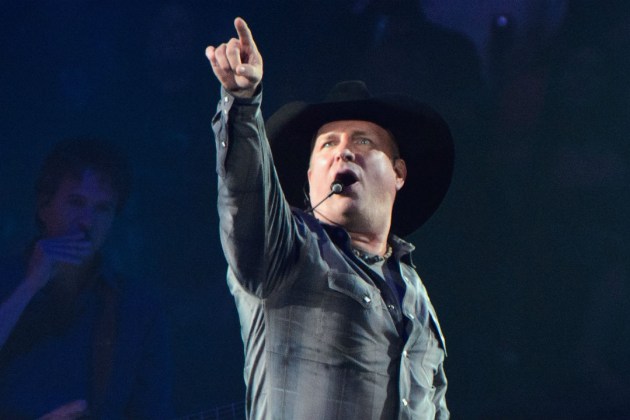
Garth Brooks will take his iconic World Tour through Las Vegas next year and promises the show will be unlike anything his fans have seen.
Wife Trisha Yearwood will join Brooks at the Las Vegas Arena July 2 through July 4, 2016 for four concerts, with more possibly to be added.
“Vegas HAS to be different,” Brooks says. “The city, the venue and the people demand it. With the help of the city, itself, this run of shows will be a ‘once-in-a-lifetime’ experience.”
According to a press release, Brooks will “create artistic components for his performances utilizing the Las Vegas Arena’s advanced production elements” for a completely new show.
Tickets to each concert in Las Vegas will be on sale via a pre-sale starting this Friday, Dec. 4 at 10AM PT. That pre-sale runs through Dec. 10. Tickets are priced at $85 and go on sale to the public on Dec. 11.
“We are truly honored that Garth Brooks will perform a unique series of live concerts during the Las Vegas Arena’s opening season,” says Rick Arpin, Senior Vice President of entertainment and development for MGM Resorts International. “Garth has delighted fans for years and we are thrilled that his loyal supporters in Las Vegas and around the world will have the opportunity to see this one-of-a-kind performance combined with a city-wide celebration. This announcement proves yet again that Las Vegas is the Entertainment Capital of the World.”
Garth Brooks Las Vegas Tour Dates:
July 2 at 7PM
July 3 at 7PM and 10:30PM
July 4 at 5PM
Read More: Garth Brooks Announces Las Vegas Tour Dates | http://tasteofcountry.com/garth-brooks-las-vegas-tour-dates/?trackback=tsmclip
Resort announces plan for 20,000-seat arena
Website under construction! Ticket sales, concert, sports and scheduling is coming soon!
This domain name/website is also for sale or lease! Contact us at: [email protected] for information!
Resorts International wants to build a privately funded, 20,000-seat indoor arena behind the New York-New York and Monte Carlo resorts that would feature boxing, top-draw headliners and special events.
Its partner is the pre-eminent sports and entertainment promoter AEG, whose collection of arenas includes the Staples Center and the Home Depot Center in Southern California, Best Buy Theater in Times Square, New York, and facilities in Shanghai, Beijing, Sydney, Stockholm and elsewhere.
The project, announced Friday morning, is anticipated to be financed with equity contributions from each of the partners as well as privately funded third-party financing, the company said in a statement.
MGM said retail shops, dining, entertainment and other enterprises would accompany the arena, stretching from the Strip to Frank Sinatra Drive behind the resorts.
“This new facility would be an extension of our entertainment legacy and continue our leadership position in the worlds of boxing, sports, concerts and other events that drive significant visitation and revenue to Las Vegas,” MGM Resorts Chairman and CEO Jim Murren said. “AEG’s dominant position in arena development, programming and management makes it an ideal partner for this venture.”
UNLV Now Stadium Renderings
UNLV Now mega events center rendering. Launch slideshow »
AEG President and CEO Timothy J. Leiweke said his company’s network of venues would “allow us to maximize booking and operations opportunities.”
The partnership with MGM Resorts, he said, “brings together the two largest promoters and operators of live entertainment venues in Las Vegas, guaranteeing the long-term success of the new arena.”
Design and planning is well under way, and the partners will begin seeking appropriate approvals immediately, a company spokesman said.
The MGM-AEG arena plans, the latest entry in the continuing and competing efforts to build a free-standing indoor arena in Las Vegas, will not affect the proposed UNLV Now, the “mega-center” stadium project that would reshape the university campus, said Don Snyder, the project leader.
“The two proposals are pretty much apples and oranges,” Snyder said. “UNLV Now is designed for hosting large events that would draw between 25,000 and 60,000 people. There’s always been separate conversation about arenas. All along, I’ve felt that an arena project can be done by individual companies and with private money.”
MGM Resorts had initially thrown its support behind UNLV Now but has since said the center’s price tag of $800 million to $900 million was too prohibitive, raising doubts about MGM’s $20 million pledge for campus project.
Snyder maintains MGM is still supportive of the UNLV Now project. UNLV is now working with various Strip stakeholders to “dial in” the cost of the stadium.
“These types of projects are always difficult,” Snyder said. “These are very normal and healthy discussions.”
The Las Vegas Convention and Visitors Authority, which usually takes a neutral stance on competitive projects, stayed true to form, not even mentioning MGM in its public comment.
“Our resort partners have invested billions of dollars into providing the facilities and amenities to provide visitors with the best possible experiences,” the organization that markets Las Vegas said in a statement. “Any project that is going to enhance the Las Vegas brand experience and potentially attract more visitors is beneficial to the future of our destination.”
Snyder, who recently stepped down as UNLV’s Hotel College dean to focus on the UNLV stadium, said he welcomed AEG’s interest in bringing more events in Las Vegas. AEG, which is the world’s largest operator of sports teams and stadiums, previously had partnered with Caesars Entertainment on a proposed arena project on the Strip.
Snyder said he wasn’t concerned that MGM-AEG’s proposed arena would compete for events with UNLV’s stadium. The UNLV stadium can host larger events and is a neutral site, meaning it could attract a wider range of events, he said.
“They are complementary projects, not competitors,” Snyder said. “AEG is a great company, and is good for our community.”
The Los Angeles-based AEG has several connections with Los Angeles real estate billionaire Ed Roski, who is UNLV Now’s private developer partner.
Roski co-owns the Los Angeles Lakers and Los Angeles Kings with AEG. Roski and AEG are also partners of the Staples Center in Los Angeles.
Roski’s Majestic Realty, which owns the Silverton Casino, has pledged to front 40 percent of the estimated cost of the UNLV Now stadium.
UNLV Now developers are hoping to raise the remainder of the cost from resort industry contributions, naming rights and corporate partnerships, as well as a special tax district awaiting approval from the Legislature.
UNLV is still working with Assembly Speaker Marilyn Kirkpatrick on the legislative proposal, Snyder said. Budget-conscious lawmakers in Carson City are unlikely to approve a tax-increment financing district without a concrete plan from UNLV Now developers regarding how they hope to finance the stadium.
The Smith Center for the Performing Arts, which Snyder helped raise $500 million for, took three legislative session for final approval on a similar tax district. From conception to completion, the Smith Center took 18 years, Snyder said.
Snyder said he remained confident a bill for UNLV Now would reach the floor of the Legislature in the remaining three months of the 2013 session. However, he was adamant he wanted to get the UNLV stadium project right, not to hastily speed it through.
“I’m convinced as ever that this project meets the need for this community,” Snyder said. “It is still a game-changer for UNLV.”
MGM Resorts operates the 16,800-seat Grand Garden Arena at MGM Grand and the 12,000-seat Mandalay Bay Events Center at Mandalay Bay on the Strip. The Thomas & Mack Center, which has 18,776 seats when configured for basketball games, is just over two miles from MGM Grand.
Rival Caesars Entertainment, through its Las Vegas Arena Foundation, also has worked to develop a 20,000-seat arena east of the Quad on the Strip. The Caesars project is controversial because the company has attempted to win legislative approval of a 0.9-cent sales tax in a tourism district within a three-mile radius of the site.
You need a scorecard to track Las Vegas arenas
With all the stadium, arena and ballpark proposals floating around Las Vegas, it’s a challenge to keep track of them all. Here’s the rundown for those keeping score:
* * *
The Sure Bet
Arena proposals on the Strip have come and gone through the years, but this $375 million, 20,000-seat arena being built by the high-profile team of Las Vegas-based MGM Resorts International and Los Angeles-based Anschutz Entertainment Group is as close as you can get to a sure thing. Buildings have been leveled to make room behind the New York-New York parking lot. The MGM-AEG duo have lined up their funding and the public is not being asked to contribute a nickel. It’s scheduled to open in mid-2016. The arena is being built to NBA and NHL specs, so expect endless chatter of proposed ownership groups seeking big-time basketball or hockey in this venue.
* * *
The Hail Mary
University of Nevada, Las Vegas officials want an on-campus stadium in their quest for Tier 1 status. After a relationship with Majestic Realty on a $950 million domed “Mega Events Center” fizzled last year, UNLV hooked up with the Las Vegas resort industry through a new 11-member stadium board. The best deal UNLV acting president Don Snyder can get from the gamers is a more modest $523 million open-air stadium with some shade, like the new Baylor University stadium pictured here. But how to pay for it? Nobody knows. A countywide sales tax increase has been mentioned, along with university fund-raising and revenue from stadium naming rights and suite sales. The stadium board will forward a report suggesting the open-air stadium option to the Legislature on Oct. 1 and hope for the best.
* * *
The Chutzpah
The new owners of the Las Vegas 51s — the Howard Hughes Corporation and some Summerlin businessmen — unveiled a $65 million plan last summer for a baseball park near Red Rock Resort in Summerlin. They wanted the city, the county and the Las Vegas Convention and Visitors Authority to pay for it. The ask had a touch of chutzpah because, as Mayor Carolyn Goodman pointed out, Howard Hughes is already paying $450 million to build Downtown Summerlin, a big shopping center next to the proposed ball park site. Goodman suggested Howard Hughes roll its ball park costs into that of the shopping project — and voila, you can have a ball yard in Summerlin. Even some local trade unions, which typically support construction projects, opposed public money for the ball park. The 51s owners have been quiet lately about their funding request, and the Triple A team appears as if it will be playing in Cashman Field in downtown Las Vegas for the forseeable future.
* * *
The Second Chance
After development company Cordish Cos. failed to meet a deadline to build an arena in Symphony Park, the Las Vegas City Council earlier this year gave the company a second chance. This time, Cordish is trying to piece together a deal for a new $200 million soccer stadium plus another $100 million to bring a Major League Soccer expansion team to Las Vegas. Cordish is partnering with Justin Findlay of the Findlay car dealership empire. The Cordish-Findlay partnership was to present the stadium/team financing plan at public meetings this week but the city cancelled out. Because, you know, they’re still “negotiating” over how much the public would be expected to contribute to the $300 million deal. The City Council has until a Sept. 1 deadline to decide on whether the Cordish-Findlay duo can move ahead or whether Las Vegas should just pull the plug.
* * *
The Dreamer
Former UNLV basketball player Jackie Robinson has spent the past seven years trying to secure financing for a $1.4 billion resort and retractable-roof arena project for 27 acres next to SLS Las Vegas on the north end of the Strip. The arena part would cost $690 million alone.
On Aug. 6, the Clark County Commission granted a zoning approval to Robinson, and he said a groundbreaking is set for a day in October, depending on U.S. Commerce Secretary Penny Pritzker’s schedule. (A Commerce Department spokesman later said the secretary is unaware of Robinson’s project.)
Industry skeptics note that Robinson still has to line up a loan for more than $1 billion, and that he offered sparse details about events and programs at the arena that would pay the bills. But Robinson says he has $300 million in equity — he hasn’t said who his investors are — to start construction, so his dream lives on.
* * *
The Plan That Melted
After the Orleans Arena declined to renew a lease, the Las Vegas Wranglers minor league hockey team floated an ice rink idea all the way up to the rooftop of the downtown Plaza Hotel’s casino. Then, the Wranglers changed that plan, moving the ice rink proposal from the Plaza roof to the hotel’s parking lot. Then, the Wranglers pulled the plug and cancelled their 2014-15 season. The team claims it will return for a 2015-16 campaign, but the club does not know where it will play.
MGM’s new arena won’t stop Goodman from pursuing facility downtown
MGM’s new arena won’t stop Goodman from pursuing facility downtown
Mayor feels centers can co-exist, saying, ‘We aren’t here to compete, to challenge anybody’
Image
MGM Resorts International
An artist’s rendering of MGM Resorts International’s project the Park, which will connect New York-New York and Monte Carlo with an eight-acre outdoor experience.
Just build it already: Why Las Vegas can’t land a pro sports team
Another arena proposed for the Las Vegas Strip
Las Vegas’ history filled with failed stadium, arena projects
Racing to build Vegas’ next venue
As ground is broken today on a privately funded arena on the Strip, Las Vegas Mayor Carolyn Goodman remains adamant that a downtown stadium will be built and that both venues could be home to professional sports franchises.
“We would always look to be complementary to what’s being offered elsewhere in the city. We would never build another wheel or observation tower or something like that,” she said ahead of today’s groundbreaking for the arena backed by MGM Resorts International and partner AEG. “What we are all working for, comprehensively, is to make Las Vegas continue to be a tourist attraction. Not only nationally, but internationally. So, yes, we are going to go ahead (with arena plans).”
Goodman has championed development of an arena downtown at Symphony Park that she believes could lure an NBA or NHL team to relocate to Las Vegas. The city has a contract with Baltimore-based Cordish Companies through May 31 to negotiate everything from funding to design.
Goodman cheers the MGM Resorts/AEG project, a $350 million, 20,000-seat venue being built behind the Monte Carlo and New York-New York. It will anchor an 8-acre park with tree-lined streets, outdoor dining and shopping. That arena and the one she envisions in Symphony Park, which would be partially funded with public money, would not compete, she said. Goodman points to New Orleans’ two stadiums and two pro teams — the New Orleans Saints of the NFL and the New Orleans Hornets of the NBA.
Click to enlarge photo
Courtesy
Artist rendering of the proposed downtown/Cordish arena.
“Let the pieces keep coming forward. Let’s see how they fit,” she said. “But let’s not work against each other. Let’s work in a community mindset. We aren’t here to compete, to challenge anybody.”
Although Cordish has made little progress since entering into its contract with the city since late 2008, the MGM Resorts/AEG project took shape quickly. So quickly, in fact, that Las Vegans might have thought it too good to be true when plans for it were first announced last year.
But with the first shovels going into the dirt today, an arena on the Strip is likely to be the first to open after a series of failed proposals including:
• Las Vegas National Sports Complex: Proposed for 485 acres of land near the M Resort in Henderson, the project from developer Chris Milam never had financing. Milam is a multiple-time loser. In 2011, he said he wanted to buy the Las Vegas 51s and build them a stadium opposite the Mandalay Bay on the west side of Interstate 15. That facility, he said, could also accommodate an NBA or Major League Soccer team. He also tried building on the old Wet ‘N Wild site on the north Strip.
• Las Vegas Arena Foundation: The 20,000-seat Silver State Arena was proposed by Caesars Entertainment, to be built east of Harrah’s and the Imperial Palace. Part of the funding for the project would have come from a newly created tax district, which didn’t get support from county commissioners.
• UNLV Now: The 150-acre UNLV Now development called for a 50,000-seat domed football stadium at the UNLV campus. It would have been more than a home for the Rebels. Officials planned on hosting concerts, mega-fights and other events. While the project died, UNLV is still working on building a football stadium.
“We have over the years had so many ideas, so many things that are going to happen, and they end up in the trash,” Goodman said.
Goodman hopes the city’s plans for downtown, a $390 million, 20,000 seat venue, aren’t included on the list of failures. Cordish, in a slim 4-3 vote by the city council in late January, received a four-month extension to complete a construction feasibility report and an investment-grade feasibility study.
Downtown/Cordish arena
Artist rendering of the proposed downtown/Cordish arena. Launch slideshow »
If Cordish and the city part ways, Goodman said she’d still pursue getting something built at Symphony Park, a 61-acre walkable plaza that already includes the Lou Ruvo Brain Institute and the Smith Center. All that’s missing is the arena.
“If it goes forward with Cordish, I am thrilled to death and I want to move it quickly,” she said. “If it fails, we are going to continue to move forward with other opportunities.”
Regardless if it was in downtown or near the Strip, the area’s chances of getting a professional sports team will improve today. Previously, any team entertaining thoughts of moving couldn’t seriously consider Las Vegas because there was no facility.
“I would be thrilled if Jim Murren (of the MGM) made a phone call and said, ‘Carolyn guess who we just signed?’” Goodman said.
The proposal at Symphony Park isn’t the only one Goodman is keeping an eye on.
Summerlin Las Vegas Baseball Club LLC, a joint venture of Howard Hughes Corp. and Play Ball Owners Group, including investors Steve Mack, Bart Wear and Chris Kaempfer, purchased the Las Vegas 51s last year with plans of moving them from Cashman Field downtown to Summerlin.
The proposal in Summerlin is for a 9,000-seat stadium across from Red Rock Resort. It would be part of a mini-urban village already being constructed.
It’s just that Goodman feels strongly about keeping the team downtown, where the 51s have eight years remaining on a lease at Cashman Field at about $300,000 a year.
“We have the greatest respect and admiration for (officials) at Howard Hughes,” Goodman said. “We hear from our residents; they love coming downtown for baseball. We have people who don’t want them to move.”
She later added, “As we go forward in the mix, it is important for sports and the arenas concept, or stadium, that we not only include Symphony Park but look to Cashman and how that figures in.”
However, the 51s appear determined to leave. Cashman Field, one of the oldest facilities in Triple-A, is north of most major downtown redevelopment.
New baseball club owners have been working for more than a year on everything from financing to dealing with multiple municipalities. The land in Summerlin is part of Clark County; Cashman Field is leased by the Las Vegas Convention and Visitors Authority and is located in Las Vegas. Getting everyone on the same page hasn’t been easy.
“There are
Proposal For Las Vegas Downtown Arena Calls For $239M In City-Provided Funds
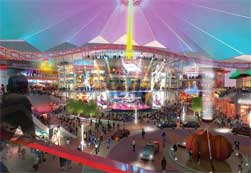
The city of Las Vegas “plans to continue working with Cordish Companies to develop” a $390M downtown sports arena, with the city paying $239M raised “in part by a special tax on downtown businesses,” according to Benjamin Spillman of the LAS VEGAS REVIEW-JOURNAL. The terms are “attached to a proposal to extend by four months a three-year-old exclusive negotiating agreement with Baltimore-based Cordish,” which would contribute $151M to the deal. It is scheduled to “go before the city council Jan. 22.” If approved, Cordish and the city “would have until June 1 to finalize a development agreement based on the proposed terms.” If the development agreement “isn’t finalized by then, Cordish would walk away” with about $2.4M based on the initial agreement from ’10. If the council “rejects the extension, the city’s existing negotiating agreement with Cordish would expire by the end of the month.” The proposed terms show the city would “fulfill its end” using $187M from “bonds backed by arena revenue, nearly $52 million from a special improvement district … and $3 million from a tourism improvement district funded through sales tax.” City Manager Betsy Fretwell said that “aspects favorable to the city include a provision that the city would be repaid for its contribution before the developer and that the city would own it.” The downtown proposal is “one of several local arena projects in varying stages of development.
Another arena proposed for the Las Vegas Strip
A privately funded $1.3 billion arena with a retractable roof has been proposed at the former Wet ‘n’ Wild site on the Strip.
Former UNLV and NBA player Jackie Robinson, a Las Vegas businessman, announced today plans to break ground next year on the 22,000-seat arena that could house basketball, hockey, boxing, rodeos and concerts.
No tenants have been signed for the arena, but Robinson has ties to the NBA and has interest in bringing a team to Las Vegas. He said the arena would be large enough to play host to NCAA regional basketball tournaments.
Developers have tentatively named the project the All Net Arena and Resort, and the project would include a high-end resort with a spa. A promenade called Victory Plaza would lead visitors from Las Vegas Boulevard past lush landscaping and water features to a restaurant, nightclub, wedding chapel and retail amenities as well as the arena.
The four-level arena would include 75 luxury boxes: 25 1,000-square-foot executive suites and 50 500-square-foot corporate suites.
The retractable roof would enable the arena to host traditionally outdoor events such as tennis matches and rodeos, or indoor sports such as basketball and hockey.
“I’m really excited about this,” Robinson said today. “I started on this about four or five years ago, and at the time, the economic conditions didn’t help. So we just waited for the right time. We have proper financing in place, the economy is moving in the right direction and our lenders are saying now is the time.”
Robinson said he and his lenders would meet with representatives of the Clark County Commission in the weeks ahead to answer questions and resolve any problems, including parking.
The 862,500-square-foot arena would be built on 27 acres between the yet-to-open SLS Las Vegas and the dormant Fontainebleau project site.
Robinson said he has a team of financial backers that includes several banks and international and domestic lenders. He also said the project qualifies under U.S. Department of Commerce and EB-5 Immigrant Investor jobs and capital investment programs. Robinson estimates the project would result in more than 19,000 construction, arena and hotel operation jobs, and the project is supported by the federal Minority Business Development Agency.
No tax money would be used for the project, but the program would qualify the developers for tax credits.
Robinson has hired Minneapolis-based Cuningham Group Architecture, which has an office in Las Vegas.
Brett Ewing, director of resort development for Cuningham’s Las Vegas office, has been hired as the project architect and is wrapping up negotiations with a high-profile sports architect for the arena.
Legendary UNLV basketball coach Jerry Tarkanian recruited Robinson, who played for the Runnin’ Rebels from 1973-78. He ranks 10th in UNLV career rebounds with 669 and 19th in scoring with 1,258 points. He redshirted one season because of an ankle injury — the season UNLV went to the Final Four in 1976-77.
He played four years in the NBA with Seattle, Detroit and Chicago, playing for the SuperSonics team that won the NBA title in 1979 and five years in Europe after his NBA career.
Robinson held executive positions in several Las Vegas companies that worked in retail, real estate, construction, credit, and the food and beverage industries. He was a one-time owner of the Las Vegas Silver Bandits of the defunct International Basketball League.
The All Net Arena site was once the proposed location of the Silver State Arena, a project pushed by Texas developer Chris Milam, who had earlier envisioned it as the site of the Las Vegas Tower, a massive high-rise hotel development.
Another arena is planned on the opposite end of the Strip. MGM Resorts International is partnering with sports and entertainment promoter AEG on a 20,000-seat indoor facility between New York-New York and the Monte Carlo.
A group also is meeting at UNLV to consider a football stadium on the campus. The group hasn’t determined the size of the facility or whether it would be a domed stadium.
New Las Vegas Strip arena to cost $350 million
AEG and MGM Resorts International have ironed out the details of a deal to build a $350 million arena behind the Monte Carlo and New York-New York resorts.
Planned as the centerpiece of MGM’s ongoing $100 million project to revitalize the cluttered pathway between the two resorts and bring more visitors outside, the 20,000-seat arena will stretch from Las Vegas Boulevard to Frank Sinatra Drive.
Officials expect to break ground on the arena in summer 2014 and open in spring 2016. Finances will be siphoned from equity contributions made by each of the partners and funds from a third-party source.
“The combination of MGM and AEG, along with the excellent Las Vegas Strip location, is already driving interest from potential investors in this exciting new development,” Jim Murren, MGM Resorts International chairman and CEO, said in a statement.
Populous, a leading design company with large arenas in London and Berlin, has signed on to design and develop the arena, expected to house major sporting events, concerts and private events.
“Bringing together the knowledge, experience and assets of our respective organizations, we will create an arena that offers fans the best live entertainment experience,” AEG CEO Dan Beckerman said.
Nevada Harrah’s Sports Arena Initiative (2012)
The Nevada Harrah’s Sports Arena Initiative did not make the November 6, 2012 statewide ballot as an indirect initiated state statute. The proposed initiative would have allowed a 20,000-seat sports arena on the Las Vegas Strip. Specifically the initiative would have imposed a 0.9 cent sales tax in a taxing district near the proposed arena. The revenue would finance bonds to construct the arena.[1]
The legislature had a March 18, 2011 deadline to decide whether or not to enact the measure. Early reports indicated that there was not enough support in the legislature for the measure to be approved, meaning it was likely to appear on the 2012 ballot. The legislature, specifically the state senate, confirmed that sentiment and rejected the measure, sending it to the statewide ballot for a public vote on March 17, 2011.[2][3]
The measure did not make the ballot, however, after the Nevada Supreme Court struck it down.
Support
Supporters
The following were groups, organizations and individuals who were in support of the measure:
Opposition
Opponents
The following were groups, organizations and individuals who are opponents of the measure:
Arguments
- According to Las Vegas Review-Journal columnist John L. Smith about the measure: “While that might not make it unprecedented in Nevada, where the politically connected have rarely been forced to play by the established rules, it doesn’t make it right. If it were to pass in November, even a two-bit mentalist could predict attorneys would have a field day shooting holes in it at the next level.”[4]
Las Vegas’ history filled with failed stadium, arena projects
Arena and stadium proposals being promoted for the Las Vegas Valley must overcome a long history and a barren wasteland littered with failed projects.
Las Vegas has seen the death of more venue ideas than any other city in the country in recent years. They’ve come and gone as rapidly as the weekend tourists that populate the Strip, with nearly a dozen plans laid to rest within the past decade and countless more spanning back further.
“We’ve watched it for 15 years,” said Daren Libonati, a veteran in the local stadium and arena business who runs Justice Entertainment Group. “The reality is, the only people to ever put their money where their mouth was were the hotel properties.”
Financing issues have caused the deterioration of the vast majority of the hypothetical arenas. Clark County commissioners have nixed a number of projects asking for public funding.
Several of them have ties to the projects now being discussed. Most notably, Texas businessman Chris Milam, who’s at the forefront on the Las Vegas National Sports Complex in Henderson, has seen three projects fail to get off the ground the past three years.
His most memorable effort came with the Silver State Arena, proposed for the former site of the Wet ‘n Wild water park on Las Vegas Boulevard south of Sahara Avenue. Plans were withdrawn after the county rejected a proposal to fund 15 percent of the venue with public money and nearby residents opposed construction.
Milam eventually turned his focus to a four-arena complex west of Mandalay Bay, but those talks ended more prematurely.
“You need to know where you’re going to get your money,” Mayor Carolyn Goodman said when asked of all the failed projects. “They’re dreams, but they haven’t done their homework or they haven’t gotten their money.”
Goodman is committed to bringing a world-class venue to downtown Las Vegas. But downtown’s failure rate when it comes to building an arena has proven just as high as the rest of the valley.
Milam briefly explored building his complex off of Charleston Boulevard, but Baltimore’s Cordish Cos. has an exclusive agreement with the City Council to study the area’s potential for an arena.
The deal came after the REI Neon project failed to get off the ground four years ago. REI Neon had an elaborate $10.5 billion scope that included an arena, hotel, casino, and residential area with a retail and entertainment district.
A decade ago, an Idaho businessman also came close to constructing a 7,500-seat downtown arena for the Las Vegas Wranglers hockey team.
“When I was younger, everyone wanted to meet all the guys and hear all these great ideas,” recalled Steve Stallworth, currently the general manager of South Point Arena and Equestrian Center. “Now, after so many, we’ve kind of become numb to it.”
Stallworth has spent 25 years in the local venue business. He’s worked at three of the five arenas standing in Las Vegas and helped open what would become the Wranglers’ home, the Orleans Arena, when the downtown proposal fell apart.
The city’s other pre-eminent minor-league franchise, the Las Vegas 51s, hasn’t been as fortunate in finding a new place to play. The 51s — who are stuck at Cashman Field, which has not undergone any major renovations since its opening in 1983 — looked to relocate to Henderson in the early 2000s.
Funding hurdles killed the idea, which team officials hoped would entice the Los Angeles Dodgers to keep their Triple-A affiliate in Las Vegas. The Dodgers bailed in 2008, citing Cashman Field as a primary reason.
On a grander scale, the southeastern part of the valley was in the discussion to land an arena two years ago with a project headed by developer Garry Goett. The Las Vegas Arena Foundation hoped to build a 20,000-seat venue near the South Point.
Libonati said he engaged in preliminary talks years ago to bring a Meadowlands-type compound that could house multiple professional sports teams around the same area.
“Wonderful projects have been presented,” Libonati said. “It’s just been a matter of getting the economics right.”
That’s the classic battle, the same one staring in the face of the current arena proposals.
Need at least 3 ratings
Las Vegas wants to build an NHL-ready arena
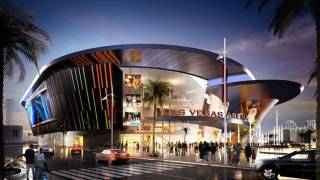
While Quebec City is busy building a potential future home for the NHL and Seattle is looking to build a new arena of their own, you can add Las Vegas to the list of places looking to attract a franchise.
The Las Vegas Sun (h/t Kukla’s) reports that the Las Vegas Arena Foundation has proposed a 20,000 seat arena to be built on the Strip in Sin City in hopes of providing a home for either/both the NBA or NHL to move to. The Foundation wants to fund building the arena thanks to a sales tax hike to help pay off the $500 million estimated cost.
The Sun report says the proposed arena would have 94 luxury suites to go along with the 20,000 seats making it an ideal setup for a team to call it their home. Major professional leagues have been wary to pursue Las Vegas, however, thanks to that whole legalized gambling thing in Nevada.
As for the NHL’s interests in Vegas, the annual NHL Awards call the city home as does big time hockey fan Jerry Bruckheimer who has had ownership aspirations in the past. Vegas joins Quebec City, Seattle, Brooklyn, and Kansas City as potential future landing spots for the NHL either via relocation or expansion.
Las Vegas News
Welcome to Our Website
Hello and Welcome to our website! You know with so much happening in Las Vegas as it rebound from the rescission, Las Vegas has proven once again that it can with stand the test of time in any situation! With all kinds of bids on at new Las Vegas Arena, once that is stamped, built and ready to go I am positive that once again Vegas won’t ever be look at the same when it comes to sports, concerts and entertainment when it has to do with Arena Vegas! Arena Las Vegas will again play a key factor in this wonderful town we call Las Vegas! It’s too bad all of this couldn’t have happen before the biggest fight in the world, but I am very sure that the Lv Arena won’t lose any ground and will truly make it for it in the long run. With arenas and stadium proposals in the making Las Vegas has once again stayed in tune with what this city needs and what will make it keep thriving for excellence! So stay tune and keep checking back because this website will be connecting the dots for ticket sales, events and will keep you informed on not only what is happening in the Las Vegas world of arenas and stadiums, it will also keep you abreast of everything that is going on in and around the Las Vegas area!
Four Las Vegas Arena Proposals All Call For Public Financing
Four applicants yesterday presented their plans for a new Las Vegas sports arena “with competitive zeal, but their enthusiasm drew a guarded response from most” Clark County (NV) commissioners, who “expressed misgivings about publicly financing an arena,” according to Scott Wyland of the LAS VEGAS REVIEW-JOURNAL. Each proposal calls for public funding to build arenas with at least 20,000 seats that “could house professional basketball, hockey, rodeo and other events.” Texas-based IDM Properties proposed a $750M arena “on the former Wet ‘n Wild site off Sahara Avenue,” while Las Vegas Arena Foundation wants to build a $488M arena “on property that Harrah’s Entertainment Inc. owns behind Imperial Palace.” Developer Garry Goett proposed a $600M arena “on 260 acres he owns near Las Vegas Boulevard, south of the Strip.” Commissioners also heard from Cordish Co., which “aims to develop an arena downtown.” The arena foundation and Goett each “want to fund their projects with bonds and a sales tax imposed in the resort corridor,” while IDM Properties President Chris Milam said that his project “would require no new taxes and instead would use redevelopment for its intended purpose: to boost a blighted area.” County commissioners have asked staff members to “research the feasibility and legality of certain proposed methods of funding.” They also “agreed to have staff work with two applicants to craft advisory questions for voters about imposing a sales tax on the resort corridor.” Commissioner Larry Brown believes that the Las Vegas market “isn’t large enough to support a top-tier pro team.” But Commissioner Tom Collins “expressed strong support for publicly funding a sports arena” (LAS VEGAS REVIEW-JOURNAL, 5/19).
RISKY BUSINESS: MGM Mirage CMO Bill Hornbuckle yesterday told county commissioners that the company “is in ‘strong opposition’ of any arena proposal that requires public financing.” Hornbuckle said that MGM “isn’t opposed to having more arenas in the area, but giving one group public financing would be an unfair competitive advantage.” Hornbuckle: “None of the arena proponents today is willing to take the same risk MGM Mirage, Mandalay Resort Group, Boyd Gaming and Coast Casinos made when they built their own permanent arenas using 100 percent privately funded dollars. None of the proponents are willing to build an arena unless the public shoulders the risk” (LAS VEGAS SUN, 5/19).
Vegas arena proposals draw opposition from county commissioners, casinos
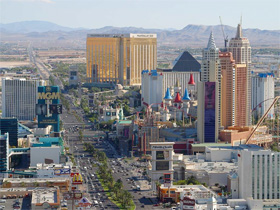 Four arena concepts — all involving public subsidies — were pitched at Clark County (Nev.) Commissioners last night, but developers didn’t gain a lot of support from elected officials and drew criticism from local casinos, who built arenas on their own dime.
Four arena concepts — all involving public subsidies — were pitched at Clark County (Nev.) Commissioners last night, but developers didn’t gain a lot of support from elected officials and drew criticism from local casinos, who built arenas on their own dime.
There have been various plans for a Las Vegas-area arena in recent years; Mayor Oscar Goodman pitched projects downtown and next to the Stratosphere Casino, but they came up short. Now the developers are going after the Strip, which isn’t part of Las Vegas proper; it’s governed by Clark County, and the casinos have a lot of sway with those elected officials.
Which probably had little to do with opposition expressed by these same commissioners toward the four proposals; they all centered on the public-funding portion of the plans. At a time when tourism is down in Sin City — which means drops in tourism taxes — the commissioners said they were having a hard enough time to make ends meet, never mind be on the hook for continuing subsidies to a speculative project. There are already five arenas in Vegas, including Thomas & Mack Center and privately financed arenas at the Orleans, MGM Grand and Mandalay Bay casinos.
The four proposals:
- Cordish Cos., which has worked on development associated with Oriole Park at Camden Yards and a new downtown arena in Kansas City, is pitching a downtown arena.
- IDM is pushing an arena on the former Wet ‘N Wild site off Sahara Avenue and the Strip.
- Developer Garry Goett is looking at a site south of the Strip, on Las Vegas Boulevard, for a $600-million facility.
- A local nonprofit arena group is pitching a facility on land in back of Imperial Palace. There’s some juice behind this proposal: arena-management firm AEG is involved.
All four of the proposals have been floating around for some time. Two of the proposals would impose a sales tax on the Strip to pay for the facilities; another would use tax-increment financing.
Another issue raised for commissioners: whether a new facility would increase tourism. Las Vegas is one of the few cities where a new arena could actually bring more people to town, as events like rodeo finals and boxing matches have a proven track record of bringing in outsiders. Whether a pro team needs to be part of the mix is debatable: it doesn’t seem like NHL or NBA officials are as hot to bring a team to Vegas as they once were.
The commissioners adjourned without taking an action on any of the proposals.
The Las Vegas Arena Foundation Presents a World-class Las Vegas Arena
“Our community must have this new arena to maintain our standing as a premier resort destination and the entertainment capital of the world,” said Bruce Woodbury, president of the Las Vegas Arena Foundation. “Our Foundation will deliver a state-of-the-art arena that will enable our city to attract a professional sports team from the NHL or NBA. Additionally, this arena will allow Las Vegas to keep vital existing events, like the National Rodeo Finals.”
The Las Vegas Arena Foundation is proposing a 0.8% sales tax only in the Strip area to pay for this arena. Limiting the tax area to the Strip will limit the anticipated tax impact to Las Vegas residents to approximately $1 per year.
“Our Arena Foundation will guarantee that thousands of good-paying union jobs will be created during the construction and into the operation of the arena,” said Danny Thompson, board member of the Las Vegas Arena Foundation and president of the AFL-CIO of Nevada. “As a not for profit organization, our Foundation will ensure this arena will be open and available for our entire community, UNLV, casinos and residents.”
Highlights of the Las Vegas Arena Foundation proposal include:
- The best location, Center Strip and within walking distance to the 37,000 hotel rooms currently located on the Las Vegas Strip;
- Iconic and best-in-class arena design by world renown architects;
- AEG, an arena management team, that has the broadest, most powerful network of entertainers and professional sports connections;
- Flexible design that will allow the arena to host a vast array of sporting and entertainment events;
- The only upcoming project that will create jobs, 3,390 construction jobs and 4,000 ongoing jobs;
- This arena will generate $660 million in economic value during the construction phase and $240 million in economic activity annually; and
- The Las Vegas Arena Foundation is comprised of long-standing, devoted community leaders, including: Marybel Batjer, Cedric Crear, Jason Goudie, Mark James, Thom Reilly, Pat Shalmy, Danny Thompson and Bruce Woodbury.
ABOUT THE LAS VEGAS ARENA FOUNDATION
The Las Vegas Arena Foundation is a not for profit foundation. Formed solely for the purpose of promoting and establishing a world-class sports and entertainment arena in Clark County, Nevada, the Foundation has brought together the finest local and international consultants to create and develop a cutting edge facility for Las Vegas, including: AEG, Brownstein Hyatt Farber Schreck, Kaemfer Crowell, Klai Architects, Kimley-Horn and WA Richardson.
SOURCE Las Vegas Arena Foundation
